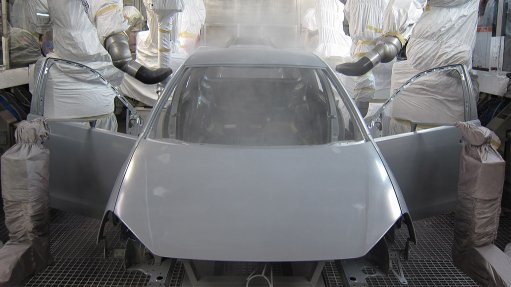
VWSA's upgraded base coat interior painting process
Volkswagen Group South Africa (VWSA) has introduced advanced automated robot technology in its paint shop – in the base coat interior painting process – which has reduced hazardous waste and increased painting efficiency, while also improving quality and consistency.
This fully automated interior painting process has also yielded cost savings, due to a more controlled paint application process, which reduces overspray and waste.
The automation project was split into two phases, with the first phase executed during the end of last year.
“Last year, the maintenance team drastically modified the spray booths by installing steelwork structures needed to support the new robots, as well as installing and testing a new high-transfer conveyor system,” says head of the VWSA paint shop, Nico Serfontein.
The second phase of the project was completed in mid-May and involved the installation and testing of the robots in the base coat interior spray booths.
While the new process has only been running for a few weeks, significant savings are already evident, says Serfontein.
“Since the installation of the new system, we have seen improved paint transfer efficiency. We also need less airflow in the base coat interior area, leading to a decrease in waste and energy usage.”
“So far, in the area, we have seen a reduction in energy usage by 8.8%, a reduction in hazardous waste by 39% and improved paint transfer efficiency to levels above 65%.”
The next phase will see the installation of similar robots in the clear coat area, with work scheduled to start in 2017.
The VWSA paint shop production enhancements are in line with the Volkswagen Group’s Think Blue Factory strategy, which aims to reduce the environmental impact per car produced by 25%.
Since 2010, VWSA has reduced its total annual energy consumption by 19.3% and the energy use per vehicle produced by 24%.
Carbon dioxide emissions have been reduced by 21%.
Other environmental initiatives resulted in a 53% reduction in waste to landfill, and a 42% drop in water use.
“We aim to continually improve and enhance our production activities in order to lessen our carbon footprint and improve our energy performance,” says VWSA MD Thomas Schäfer.